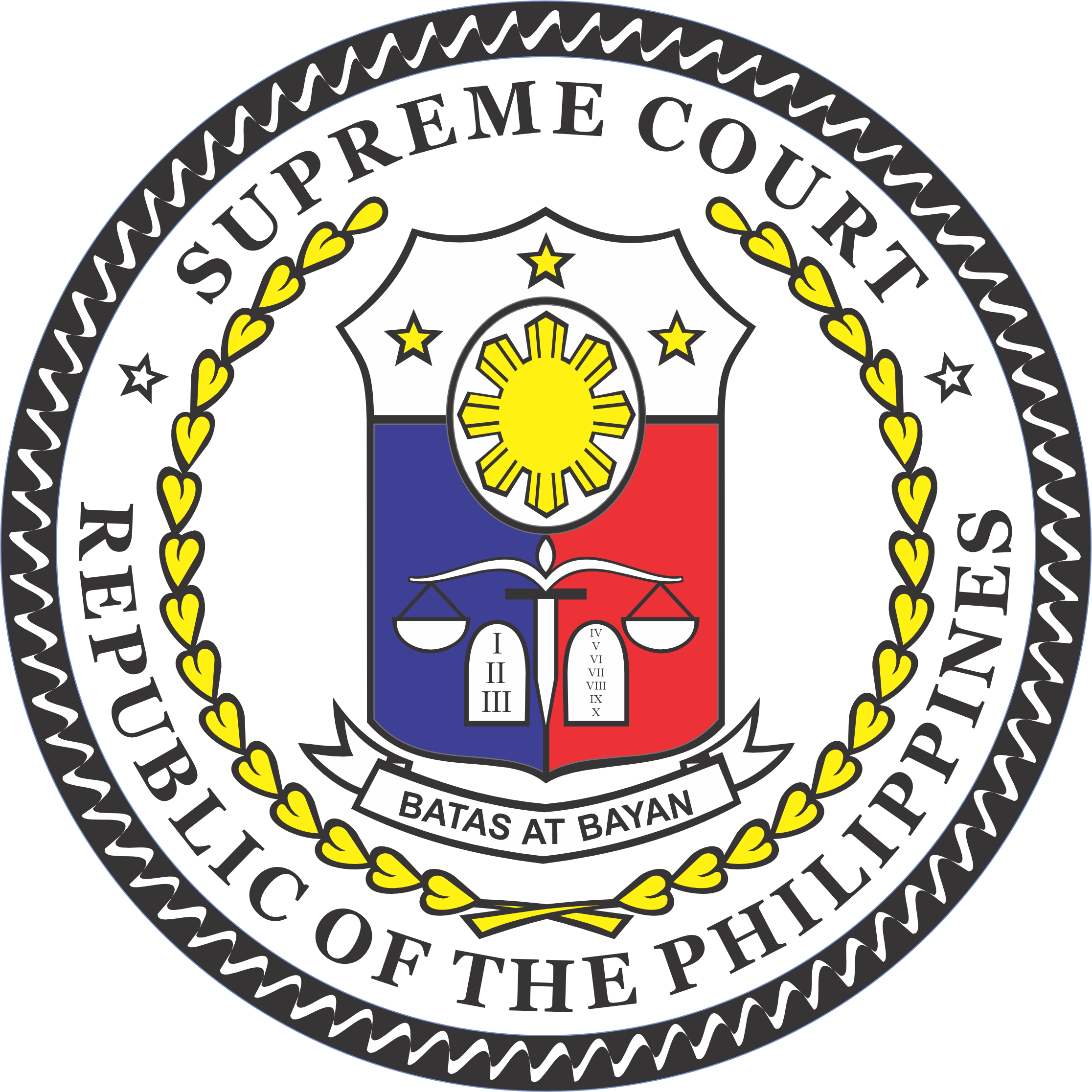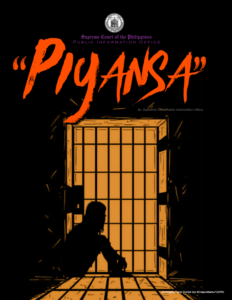

Requirements for Filing of Initiatory Cases
You may also contact the Judicial Records Office-Docket Receiving Section:
JRO – +632 8521-8026
DOCKET – +632 8524-6607
Contact the SC Office of Administrative Services:
The Notarial Register can be purchased from the Office of the Court Administrator Property Division located at the SC Centennial Building, Padre Faura St. corner Taft Ave., Ermita, Manila (beside UP Manila – CAS Entrance) for PHP 1,200.00.
For security and health protocol purposes, purchasers are requested to call the Property Division at +632 8525-1122 once they are at the gate so the transaction may proceed. Please be informed that this transaction to purchase the Notarial Register will only be from 8 A.M. to 12 P.M., Monday to Friday.
Please keep in mind that the Notarial Commission/Certification must be presented upon purchasing the Notarial Register.
Judicial Records Office
Judgment Division
Docket Receiving
For online filing and other queries:
Request for verification of employment of Supreme Court Justices, officials and employees, and employees, and lower court judges, employees, and personnel shall be made through personal visit by the requesting party to the office/department concerned during regular working days and hours (Monday to Friday from 8:00 a.m. to 4;30 p.m.).
|
Subject of Verification |
Concerned Office |
Location/Building |
|
Justices, Officials and Employees of the Supreme Court |
Personnel Division, Office of Administrative Services, Supreme Court |
4th Floor, Centennial Building, Supreme Court, Padre Faura St. cor. Taft Avenue, Ermita, Manila |
|
Judges and Personnel of the Lower Courts (Regional Trial Court, Metropolitan Trial Court, Metropolitan Trial Court in Cities, Municipal Trial Court, Municipal Circuit Trial Court, Shari’a District Courts and Shari’a Circuit Court) |
Personnel Division, Office of Administrative Services, Office of the Court Administrator |
Ground Floor, Old Supreme Court Building, Taft Avenue cor Padre Faura St., Ermita, Manila |
Article VII, Sec. 1 of the Philippine Constitution limits the Supreme Court’s exercise of its judicial power to the settlement of actual controversies involving rights which are legally demandable and enforceable, and the determination of whether or not there has been a grave abuse of discretion amounting to lack or excess of jurisdiction on the part of any branch or instrumentality of the Government. Thus, the Court is enjoined from dispensing legal advice, rendering any legal opinion, or taking action on matters which it may potentially be called upon to adjudicate at some future time. It is strongly suggested that parties consult a lawyer who can apprise them of all the legal remedies available to address their concerns.
Parties may inquire from the Integrated Bar of the Philippines (IBP), the official organization of all Philippine lawyers. They may contact the IBP through [email protected], or dial +63 2 8631-3016, +63 2 8631-3017, and +63 2 8631-3018.
Parties may also seek assistance from the Public Attorney’s Office (PAO) which provides free legal advice. The PAO may be reached through: [email protected], or call +63 2 8929-9436, +63 2 8426-2075; +63 2 8426-2801; +63 2 8426-2450; +63 2 8426-2987; and +63 2 8426-2683.
Any of the incumbent Supreme Court Justices may solemnize a marriage ceremony. One may write a formal letter addressed to the Justice of their choice and email it to [email protected]. The Office of the Associate Justice will then give the requirements once His/Her Honor confirms their availability. Regarding the procedure, there requirements vary depending on the Justice who will solemnize the wedding. Common requirements are: marriage license, payment of the PhP 300.00 fee and PhP 20.00 for documentary stamps, and birth certificates of the contracting parties. Some require copies of the parties’ respective CENOMAR, and still some require a joint affidavit from the parties stating their personal circumstances, their capacity to marry, and their intent to invite the Justice as the solemnizing officer.
It should be noted that the Office of the Justice shall not be responsible for filing the marriage certificate with the local civil registrar as the same must be processed by the applicants themselves. However, should the Office of the Justice agree to process the filing of the marriage certificate, the administrative and other related expenses in relation thereto, the same shall be charged to the applicants.
A. For externship programs in courts of law:
Please refer to Sections 3, 4 and 5 of Rule 138-A (A.M. No. 19-03-24-SC dated November 24, 2020, or the Guidelines on the Externship Program of Law Student Practitioners in Court under Rule 138-A).
B. For requests for internship/on-the-job training from non-law students
You may coordinate directly with the respective Chiefs of Offices of the Supreme Court, pursuant to A.M. No. 23-07-12-SC (Re: On-the-Job Training in the Supreme Court).
Please refer to the Supreme Court Directory (/contact_us.html) for the contact information of the Supreme Court Chiefs of Offices.
Minimum documentary requirements for bail:
A. Cash Bail
-
- Certified True Copy or Official Court Copy of the Information;
- Four (4) sets of the accused’s picture showing his/her front, left and right profiles, with the name and signature of the accused at the back of each picture;
- Accused’s left and right handprints;
- Barangay Certification intended for bail purposes, reflecting accused’s real name and residence;
- Location plan or house sketch of the accused as certified by the barangay;
- In case the accused is detained, Certificate of Detention showing the name, designation and signature of the personnel authorized to issue the said certificate where accused is detained;
- Accused’s notarized Undertaking and Waiver of Appearance in accordance with Rule 114 of the Revised Rules of Criminal Procedure; and
- Bail amount recommended or imposed by the Court
- (Re #8) In case the Information states “Bail Not Required,” “Bail is Not Necessary” or “No Bail is Recommended,” or the bail imposed is more than or different from that which was recommended in the Information, certified copy of the Order stating the amount of the bail.
B. Corporate Surety Bond
-
-
Photocopy of the Certificate of Accreditation and Authority issued by the Court Administrator containing the photograph of the authorized agent (after presentation to the Clerk of Court of the original as Copy of the Certificate of Accreditation and Authority containing the photograph of the agent), with the following attached documents:
- Certified copy of a valid Certificate of Accreditation and Authority issued by the Office of the Court Administrator;
- Proof of payment of legal fees under the Rules of Court and the documentary stamp tax (thirty centavos [P0.30] on each four pesos [P4.00] or fractional part thereof, of the premium charged;
- Secretary Certificate containing the specimen signatures of the agents authorized to transact business with the courts.
- Four(4)sets of photographs of the accused;
- Original Waiver of Appearance of accused under oath;
- Original Certificate of Detention;
- Certified True Copy or Official Court Copy of the Information; and
- Certification from the Barangay Captain attesting to the real name of the accused, his actual residence in the barangay and attaching a location plan showing the residence of the accused.
-
Photocopy of the Certificate of Accreditation and Authority issued by the Court Administrator containing the photograph of the authorized agent (after presentation to the Clerk of Court of the original as Copy of the Certificate of Accreditation and Authority containing the photograph of the agent), with the following attached documents:
C. Property Bond
-
- Transfer Certificate of Title of the property;
- The real property’s latest Tax Declaration; and,
- All the documentary requirements under Cash Bail (See “A” above)
Reference: OCA Circular No. 204-2022
READ: “Pyansa”

To go to the JEPS website: https://epayment.judiciary.gov.ph/
For other questions, as well as available references and materials on JEPS, you may visit the JEPS Help Center at:
https://help-epayment.judiciary.gov.ph/index.html
You may also contact [email protected] for other concerns.
Requests for Service Abroad of Judicial Documents
Inbound Request
Outbound Request
CONTACT DETAILS
Central Authority, Office of the Court Administrator, Third Floor, Old Supreme Court Building, Padre Faura Street, Ermita, Manila 1000
Philippines
+632 8536 9040
[email protected]
FORMS
Model Form annexed to the Convention
Request, Certificate, Summary with Warning
Guidelines for Completing the Model Form
RESOURCES:
Service Section at the HCC Website
Status Table
Authorities
Outline of the Service Convention
Frequently Asked Questions on the Service Convention
For the Court to take cognizance of an administrative case against a member of the Philippine Bar the following must be complied with and submitted before the OBC:
(a) Filing of a verified and notarized complaint [one (1) original and four (4) photocopies];
(b) The supporting documents and/or Affidavits of Persons having personal knowledge of the facts alleged therein must be duly authenticated, if applicable;
(c) The filing may be done personally or through registered mail or private courier addressed to the OBC located at the 3rd Floor Multi-purpose Building, Supreme Court of the Philippines, P. Faura, Ermita, Manila; and
(d) The soft copy (PDF file) of the said complaint may be sent through our e-mail address at [email protected] or it can be stored in a CD/USB which will be submitted together with the hard copy of the complaint.
Contact numbers of
lower courts
Follow-up requests for certification, Bar Exam Information, etc.
Filing (fees, requirements)
Contact the Judicial Records Office-Docket Receiving Section:
JRO – +63 2 8521-8026
DOCKET – +63 2 8524-6607
Employment Verification
Contact the SC Office of Administrative Services:
Notarial Book/Notarial Register
The Notarial Register can be purchased from the Office of the Court Administrator Property Division located at the SC Centennial Building, Padre Faura St. corner Taft Ave., Ermita, Manila (beside UP Manila – CAS Entrance) for PHP 1,200.00. For security and health protocol purposes, purchasers are requested to call the Property Division at +63 2 8525-1122 once they are at the gate so the transaction may proceed. Please be informed that this transaction to purchase the Notarial Register will only be from 8 A.M. to 12 P.M., Monday to Friday. Please keep in mind that the Notarial Commission/Certification must be presented upon purchasing the Notarial Register.
Case Status
Judicial Records Office
Docket Receiving
For online filing and other queries:
Contact Information of the different
offices in the Supreme Court
Participant’s Guide to
Video Conferencing Hearings
Employment
Verification
Request for verification of employment of Supreme Court Justices, officials and employees, and employees, and lower court judges, employees, and personnel shall be made through personal visit by the requesting party to the office/department concerned during regular working days and hours (Monday to Friday from 8:00 a.m. to 4;30 p.m.).
Gabay ng mga kalahok
sa Videoconferencing Hearing
Requesting for legal advice, opinion and assistance from the Supreme Court.
The Philippine Constitution limits the Supreme Court’s exercise of its judicial power to the settlement of actual controversies involving rights which are legally demandable and enforceable, and the determination of whether or not there has been a grave abuse of discretion amounting to lack or excess of jurisdiction on the part of any branch or instrumentality of the Government (Art. VIII, Sec. 1). Thus, the Court does not dispense advice, render any legal opinion, or take action on matters which it may potentially be called upon to adjudicate at some future time. It is strongly suggested that parties consult a lawyer who can apprise them of all the legal remedies available to address their concern.
Parties may inquire from the Integrated Bar of the Philippines, the official national organization of all Philippine lawyers. They may contact the IBP through [email protected], or dial +63 2 8631-3016, +63 2 8631-3017, and +63 2 8631-3018.
Parties may also seek assistance from the Public Attorney’s Office which provides free legal advice. The PAO may be reach through: [email protected], or call +63 2 8929-9436, +63 2 8426-2075; +63 2 8426-2801; +63 2 8426-2450; +63 2 8426-2987; and +63 2 8426-2683.
Civil Wedding rites
before the SC
Any of the incumbent Supreme Court Justices may solemnize a marriage ceremony. One may write a formal letter addressed to the Justice of their choice and email it to [email protected]. The Office of the Associate Justice will then give the requirements once His/Her Honor confirms their availability. Regarding the procedure, there requirements vary depending on the Justice who will solemnize the wedding. Common requirements are: marriage license, payment of the PhP 300.00 fee and PhP 20.00 for documentary stamps, and birth certificates of the contracting parties. Some require copies of the parties’ respective CENOMAR, and still some require a joint affidavit from the parties stating their personal circumstances, their capacity to marry, and their intent to invite the Justice as the solemnizing officer.
It should be noted that the Office of the Justice shall not be responsible for filing the marriage certificate with the local civil registrar as the same must be processed by the applicants themselves. However, should the Office of the Justice agree to process the filing of the marriage certificate, the administrative and other related expenses in relation thereto, the same shall be charged to the applicants.
Externship/Internship/OJT Program
in the SC
At this time, the only program being offered to students is the externship programs in courts of law. They are open to student practitioners certified in accordance with Sections 3, 4 and 5 of Rule 138-A and enrolled in a Clinical Legal Education Program (CLEP) of any law school in the Philippines. This is pursuant to the policy issued by the Court in A.M. No. 19-03-24-SC dated November 24, 2020 (The Guidelines on the Externship Program of Law Student Practitioners in Court under Rule 138-A). Section 2(b) of the Revised Law Student Practice Rule defines externship as a part of the clinical legal education program if: (a) it allows students to engage in legal work for the marginalized sectors or for the promotion of social justice and public interest, and (b) it is undertaken with any of the following: (i) the courts, the Integrated Bar of the Philippines (IBP), government offices; and (ii) law-school-recognized non-governmental organizations (NGOs).
Similar requests from non-law students to undergo internship/on-the-job training/practicum with the Supreme Court have been previously denied by the Court as a matter of policy.
Email Us
Please include your name, contact number, email address, and the subject in your email.
Please read our Privacy Notice for the terms on the collection of your personal information.
By using this Query Form, you agree to the collection of personal data. For more information, you may refer to our Privacy Notice.







